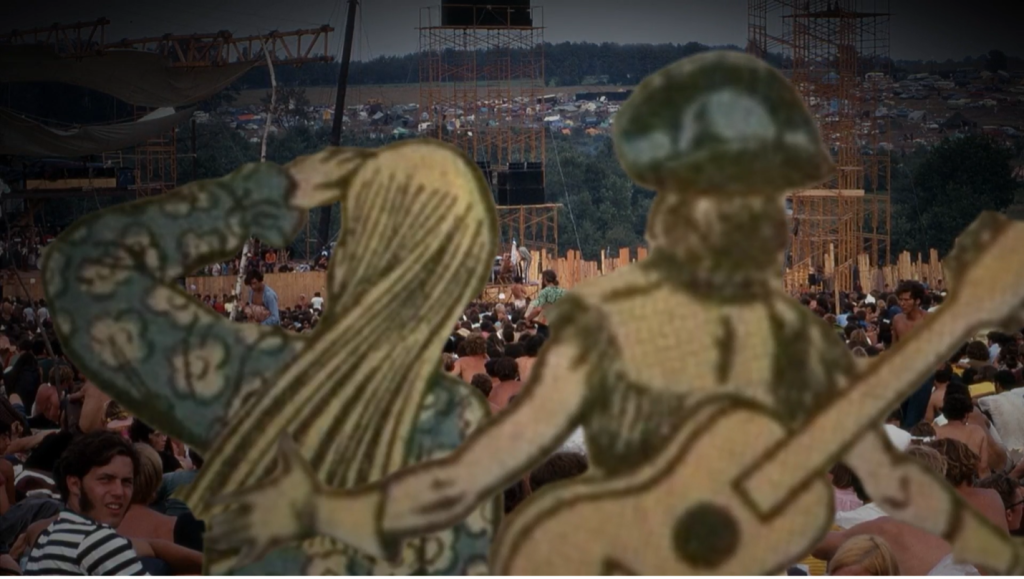Dean’s Undergraduate Research Award (DURA) recipient Rex Xiao conducted research with Special Collections’ romance comic book collection, exploring midcentury American life and teenage counterculture. By examining how romance comics, rooted in conservative values, reflect the spirit of progression and revolution in the context of the counterculture, Xiao’s project offers a fresh perspective on the meaning of self-expression and non-conformity in mid-century America. Xiao produced an animated documentary short film based on selected comics coupled with historical footage from the internet archive.
Xiao reflects on their DURA research experience:
“As part of the Dean’s Undergraduate Research Award (DURA) program, I worked on a year-long project on 1960s “romance comics,” researching and producing an animated documentary short that explored how these traditional narratives responded to the sociopolitical changes of the swinging ‘60s.
I was introduced to romance comics in librarian Heidi Herr’s intersession class, “Romancing the Comic Book.” Throughout the course, we explored a variety of titles spanning from their inception in the late ‘40s to their decline in the ‘70s. Most followed a predictable plot: an unhappy white girl falls in love with her ideal man, only to see their relationship falter, yet surprisingly end with a reunion.
As a film and creative writing major, I believe that every story has value but needs to be told in the right way. I started to think about how the conservative narratives might be reintroduced to the public. This thought process was invigorated after taking Adobe After Effects with Professor Jimmy Joe Roche, leading me to conceive an animated documentary that would both defamiliarize and engage dated romance stories with modern values.
During pre-production, Heidi assembled a personal library for me that included scanned romance comics organized by era and various rare secondary sources, such as a transcribed interview with Barbara Friedlander, DC Comics’ first female character creator, and writer and editor of romance comics. This collection provided essential context for understanding the narrative structures and prevailing values within these comics. Although society was pushing for changes at the time, romance comics—primarily aimed at young girls yet mostly authored by men—were slow to adapt.
Thus, titles that defied conservative values became prominent and valuable, warranting documentation. My film highlights several examples, including “Daughter of Women’s Lib” and “The Only One for Me,” both of which feature protagonists contemplating feminist themes, such as the essence of love and marriage. Moreover, “Full Hands Empty Heart” and “Chuck and Margo Saga” showcase bold attempts to portray interracial marriages, in response to the Loving v. Virginia case, which outlawed race-based legal restrictions on marriage.
To highlight the significant events that influenced the nuances of 60s romance comics, I incorporated archival footage from the Women’s Liberation Movement, Vietnam War protests, the Woodstock Festival, and others. Unexpectedly, I also discovered a number of home videos and commercials now considered “lost,” which resonated with the long-forgotten romance comics.
Perhaps the most time-consuming aspect was the animation. While documenting the selected titles, I drew inspiration from the HBO documentary The Lady and the Dale, particularly its paper cut-out visual style. Given the unique format of comics, a full frontal depiction of a character is rare, as they are often shown in motion with their bodies partially obscured by the panel borders. Thus, I reconstructed the characters by cutting out their figures from various panels and assembling them together. I also utilized archival photos that echoed the 1960s fashion, placing these figures in authentic settings. This approach yielded a collage-like effect that merged the comic book aesthetics with the real world.
From time to time, comics that defied conventional norms did emerge, despite the majority of romance comics perpetuating traditional marital values. These stories, which might seem predictable today, were progressive for their time. With people advocating for freedom and diversity and all the inspiring things happening in society, it is reassuring to see that the voices of the people are being heard, and changes are possible even within the traditionally conservative world of romance comics.
I would like to personally thank Heidi Herr and Jimmy Joe Roche for their guidance and mentorship while working on this project. It would not have been possible without them.”



